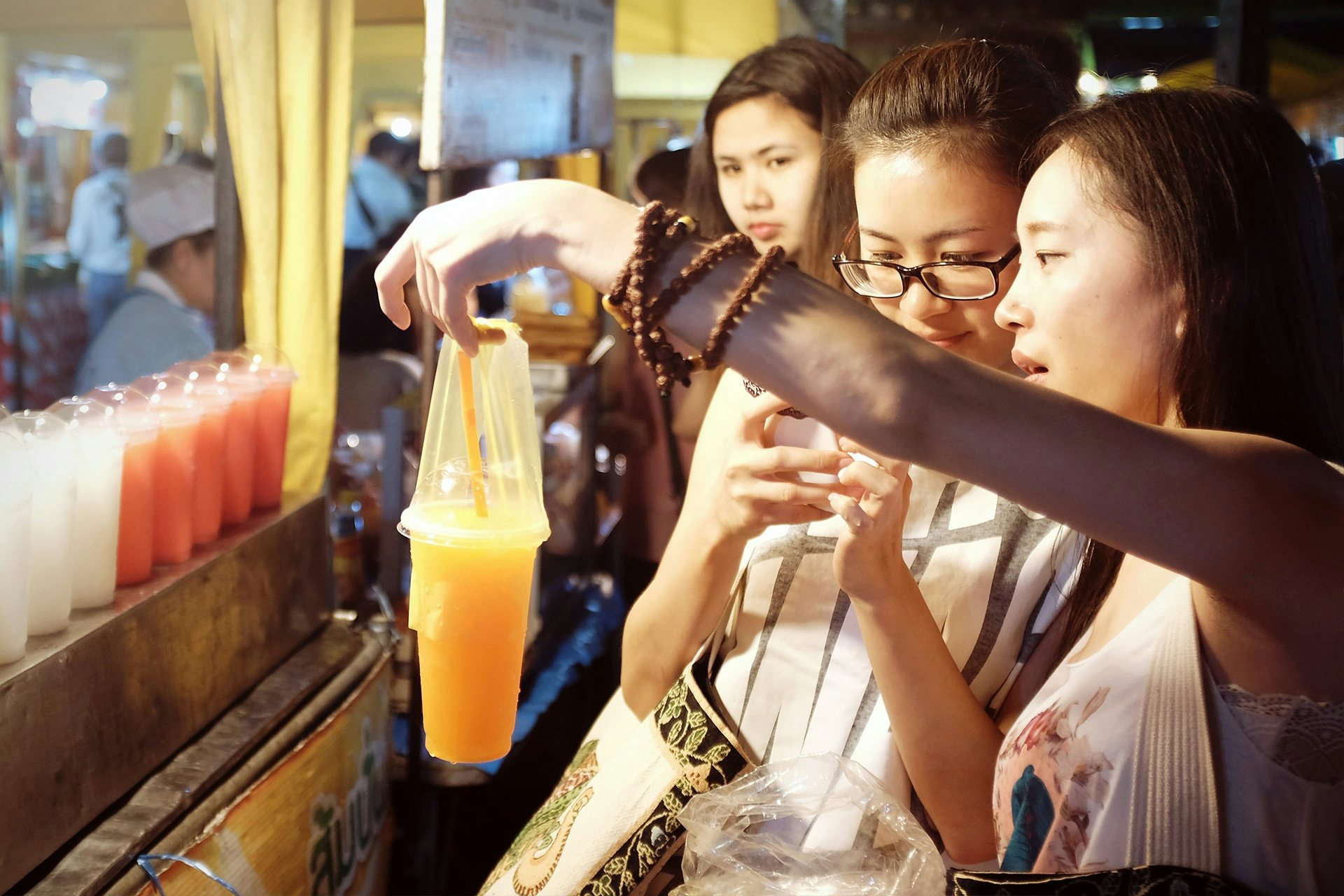Despite what Hong Kong's gloomy state of retail may suggest, the idea of traveling south to the Cantonese cultural hub hasn't worn off for many Chinese jetsetters under the age of 35. It's still the number one destination for mainland Chinese millennials, according to a new report by market research firm Daxue Consulting. But there's a catch—once a young traveler has been there, they're setting sights elsewhere, particularly on South Korea and Thailand.
The latter destinations have seen a growth in Chinese tourism at a rate that is five times larger than in Hong Kong and Macau as millennial Chinese travelers increasingly crave “new and fresh” cultural experiences. In other words, Hong Kong and Macau make for a “safe” place for travelers to dip their toes in the water, but after that, they gain the confidence to move on to more culturally challenging destinations. “The average wealthy Chinese millennial has been to 13 countries and traveled abroad 3.3 times for leisure in the past year alone for an average of 25 days,” according to the report. “With respect to Chinese millennials, it is advisable to view them as 'travelers' rather than 'tourists', as they prefer to respond to opportunities to plan their own customized trips.”
When it comes to trip planning, it's well-known that shopping makes up a large part of the motivation for a Chinese traveler, and this is still the case for South Korea and Thailand. In fact, about 70 percent of Chinese tourists head to South Korea to go shopping, thanks to its favorable tax policies and coveted high-end beauty products. However, South Korea also lures the millennials obsessed with Korean dramas and K-pop, and it doesn't seem to be letting up (although there has recently been a rumored Chinese government ban of K-pop because of strained diplomatic relations). Tourism from China to South Korea increased 12 percent since 2015, according to the report.
A similar trend is happening in Thailand—the beach-filled vacation spot offers its fair share of luxurious resorts, plus gives bargain hunters affordable deals on food, tours, and shopping, but Chinese millennials are also getting “T-pop fever.” The increasing popularity of Thai soap operas with young Chinese viewers make a trip to Thailand all the more appealing.
Japan is also experiencing a shift from being a shopping destination to a place where travelers can learn more about its culture, and thus Chinese travelers are increasingly headed to cities outside the common Kyoto, Osaka, and Tokyo route. Hospitality marketers are recognizing this and giving travelers opportunities to embark on cultural experiences, even in shopping meccas like Tokyo.
The report emphasizes that Asian countries will continue to be more preferred travel destinations for Chinese millennial travelers because their geographical proximity means their pop culture is more likely to have an influence on Chinese consumers. Still, plenty of travelers are going West, and the United States is listed as the most popular destination outside of Asia. The number of Chinese travelers to the United States is only expected to grow as the United States and China continue to cooperate to get Chinese tourists to visit cities that are off the beaten track.
